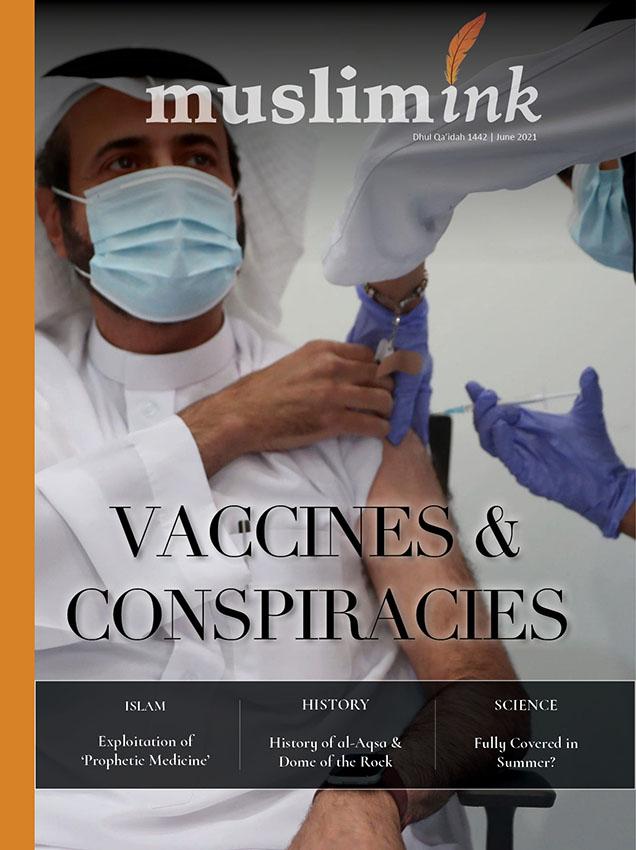
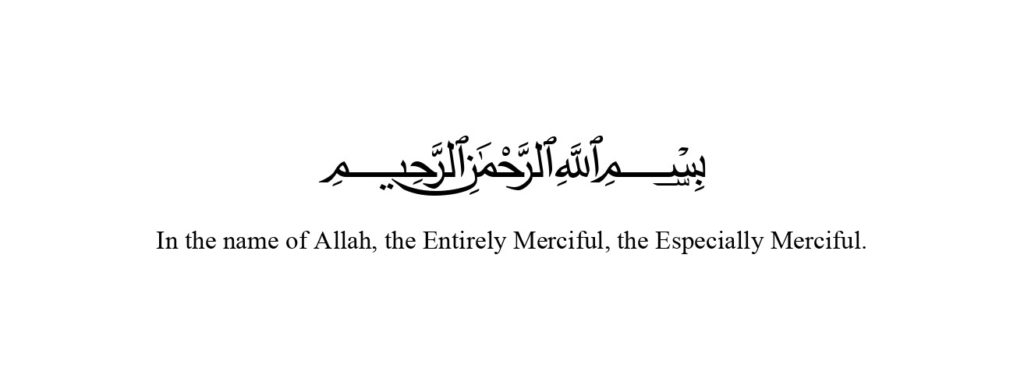

CURRENT AFFAIRS
Spreading Rumors at Times of Crisis
Undoubtedly at times of tribulation there is a lot of propaganda and excitement, hence the role of rumours. It is well known that verifying news is required according to sharee’ah, because Allah says (interpretation of the meaning):
“O you who believe! If a Faasiq (liar — evil person) comes to you with any news, verify it, lest you should harm people in ignorance, and afterwards you become regretful for what you have done.” [Al-Hujuraat, 49:6]
What is meant by verifying is making the effort to find out the truth of the matter, so as to establish whether this can be proven or not. Verifying means making certain of the truth of the report and its circumstances.
Al-Hasan al-Basri said: “The believer reserves judgement until the matter is proven.”
In the above ayah, Allah issued a stern warning against passing on all that one hears. It was narrated that Hafs ibn ‘Aasim said, the Messenger of Allah ﷺ said: “It is sufficient as a lie for a man to speak of everything that he hears.” [Muslim in al-Muqaddimah, 6; Saheeh al-Jaami, 4482] [Source: IslamQA]
A PANDEMIC OF CONSPIRACIES
Tackling Vaccine Misinformation Among Muslims
By Faraz Omar

Is the COVID19 pandemic real or a conspiracy with a hidden agenda? Are the vaccines safe? How were they developed so quickly? Are vaccines part of a sinister plan to kill, monitor and control the world population? Is all what is happening being directed by a group of powerful, elite men who control the world?
Many concerns and rumors have been circulating around the world since the beginning of the pandemic. Some concerns are legitimate, but many are not.
In a series of articles, we will attempt to compile factual responses and Islam’s approach on such matters so readers can understand these issues based on knowledge.
Baseless rumors and conspiracies among some Muslims have not been any different from those found among other uneducated communities of the world. COVID-19 seems to have exposed a pandemic in some parts of the ummah – our love for ignorance! This is quite an unfortunate phenomenon to witness because Muslims are supposed to be an ‘Ummah of Iqra’ – a nation that relies on evidence and respects knowledge.
The downfall of the ummah is a well-trodden topic that attracts passionate inputs from all of us. The primary reason for our downfall that we all seem to agree on is that we, as Muslims, are not living the religion as we should be. Allah promises in the Qur’an, “You will surely be victorious if indeed you are true believers.” (Qur’an, )
Part of living the religion is understanding and implementing teachings like “ask the people of knowledge if you do not know,” “produce your proof if you are truthful,” and “if an evil person comes to you with news, verify it.”
Muslims Laid the Foundation for Vaccines
A little historical background at this point will be helpful to illustrate how scientific and advanced Muslims have always been. While the Chinese may have first attempted to use destroyed particles of an infection to build a cure, it is Muslims during the Ottoman caliphate that successfully built immunity against Smallpox in many cases by introducing weakened particles of the infection to the body. This method, called variolation, so impressed the British ambassador’s wife in Istanbul that she used it for her children and took it back to England, which led to the development of modern-day vaccines.
What are Vaccines and How Do They Work?
In simple words, vaccines simulate the virus so our immune systems can be trained to fight the actual disease. A common misconception among people is that taking a vaccine will prevent one from contracting the disease. This is only possible if the vaccine is 100% efficient or if the majority of the population has taken the vaccine and we have reached the level of herd immunity – none of which is the case at this time with our current pandemic.
If someone has taken the vaccine, he or she can still contract COVID-19. However, the efficacy of the vaccine you have taken (Pfizer’s is 95%, while AstraZenca’s is about 70%) will determine the degree of protection against the disease. Also, the efficacy rate is lower for the new variants because the vaccines were developed based on the first variant. But still, at the moment, vaccines are the best protection we have against COVID-19. Are there legitimate concerns about side effects? Sure. But many concerns have been responded to and it is an informed decision we must make. What risk are we willing to take? The risk of the vaccine or the risk of COVID-19.
Muslim Attitude to the Vaccine Controversy
The Islamic approach to the vaccine controversy is to ask experts in the subject. This in fact is a foundation of Islamic fiqh. When faced with worldly matters, Islamic scholars reach out to trustworthy experts to determine the truth and issue a fatwa or ruling based on Islamic laws. We can learn much from this approach. Instead of believing half-baked rumors on vaccines, we must reach out to trustworthy Muslim doctors and scientists, for example, and get clarity.
Who should we trust?
Believing in anti-vaccine conspiracies will eventually make us suspect and mistrust the entire Muslim world. Do you think Muslim scholars, leaders, doctors, and scientists have no idea about these issues? Do you think they will permit something designed against us? Which reputable doctor, scholar or leader has warned Muslims against vaccinations? Do you know Muslim scholars and experts around the world have been following, discussing, and getting to the roots of these issues?
Muslim Scholars and Doctors on the COVID-19 Vaccine
When the first vaccines against COVID-19 were being rolled out late last year, scholars around the world started having detailed discussions with Muslim doctors and scientists.
In India, Preston college arranged a panel discussion on January 28, 2021, with scholars like Shaikh Dr Abdullah Jholam, Shaikh Dr RK Noor Mohammad, Shaikh Dr Ilyas Azami, and Shaikh Abdul Hasib. Dr Masood, a medical doctor well-known to the community, explained and answered questions about COVID-19 vaccines.
In the UK, a similar panel held in December 2020 included Dr Muhammad Munir, a virologist whose COVID-19 vaccine is in one of the phases of the trials. Dr Munir also sits in WHO’s expert panel for vaccines. Islamic scholars have known him for a while and verified his character and trustworthiness from multiple sources. The panel also included, among others, Dr Aasim Padela, a US-based frontline doctor and professor/researcher who specializes in Islamic bioethics. Abu Eesa Niamatullah, a pharmacist by profession and who in the past was in the business of manufacturing medicines, attended an 8-hour session end of last year where an independent advisory board to the FDA gave their input on whether the vaccines can be approved.
Muslim institutions are taking their job seriously, alhamdulillah. By spreading rumors, we are questioning the integrity of Muslims as well.
How can Muslims not trust those who are most deserving of it and instead believe unverified claims and suspicions spouted by people with agendas unknown to us.
Islam’s Stance on Medical Treatments
The Prophet ﷺ said, “O Worshipers of Allah! Seek medical treatment, for Allah has not made a disease without making a remedy for it, with the exception of one disease.” They asked, “O Messenger of Allah! What is it?” He ﷺ replied, “Old age.” [Abu Dawood, At-Tirmidhi, An-Nasaa’i, Ibn Maajah, and Al-Haakim; Adh-Dhahabi, Al-Albaani and Al-Arna’oot classified it as saheeh]
As scholars have pointed out from numerous texts, the proper Islamic approach is to utilize the treatments available and have tawakkul on Allah. We do not place our trust in medications, but we use them and trust Allah to cure and/or protect us. We must take the necessary steps that are required of us.
Scholars have also explained the much-misunderstood hadeeth of the 70,000 who will enter Jannah without account – that it does not mean they do not take medical treatments. It means they do not believe in evil omens and do not ask or depend on others for ruqyah.
In another hadeeth, a woman asks the Prophet ﷺ to make duʽaa for cure from epilepsy and the Prophet ﷺ gives her the choice of getting cured or bearing it with patience and getting paradise in return. The woman chose to bear the disease with patience.
Scholars have explained that the disease you can bear patiently cannot be:
- One that can cause death if not treated,
- One that can fail an organ or a body part like losing one’s eye or similar,
- One that can spread to others.
In ahadeeth, there are diseases mentioned that if a person dies due to them, he or she will attain the status of martyrdom. Scholars explain that one of the conditions required is that the person who died must have done his or her part in taking the necessary precautions and/or treatment.
Restricting Ourselves to Prophetic Medicine
Scholars have pointed out that the Prophet ﷺ was sent to teach us the religion, not medicine. It is grossly inappropriate if we restrict ourselves solely to the much-misunderstood “Prophetic Medicine” and show a lackadaisical attitude toward advancing in the field of medicine. This attitude goes completely against Prophetic teachings although his amazing guidance on all aspects of life adds proof to the divine source of information. Early Muslims who had a proper understanding of the religion advanced in all aspects of life while being guided by the teachings of Islam.
Legitimate Concerns About Vaccines
Of course, there are legitimate concerns about vaccines: from side effects to potential long-term implications. We are foretold that there may be one in a million chance of a potential long-term implication. However, in a pandemic, the benefit of protecting ourselves from COVID-19 outweighs the said risk. Moreover, such concerns are true about many allopathic medicines as well. In emergency situations, we take life-saving drugs or undergo procedures that have many side effects because there is a more important issue to deal with. We must know the pros and cons of the available treatments to make informed decisions.
Although we may not have long-term data for the current vaccines, vaccines themselves have been around for quite a long time. We know enough to make a calculated risk. Of course, all these issues have been questioned, studied, and carefully evaluated by experts. Independent experts are quite skeptical and critical before they give their nod of approval.
Mistrust Due to Past Side Effects
All human advancements have come by experimenting and building upon lessons learned. We have come a long way since vaccines were first in the late 19th and early 20th century. In the early years, vaccines had adverse side effects along with promising results. It took us decades of learning and improvising to come up with the level of sophistication, testing and risk reduction we have today.
Coincidences
Many times, an infection or illness that happens after taking a vaccine may lead one to think that the cause was the vaccine. This routinely happens with vaccinations administered on babies. We have seen this happening with the COVID-19 vaccine as well with many claiming they got the virus right after taking the vaccine. First, the vaccine itself requires at least two weeks for the body to start building antibodies. Second, the vaccine cannot lead to getting COVID-19.
Political Misuse of Vaccines
In the early 2010s, the CIA ran a fake vaccination program in Pakistan, offering free Hepatitis B vaccines to children in an attempt to collect DNA evidence and find Osama bin Laden. When news of this scheme broke, it added proof to existing conspiracy theories about vaccinations. Many local leaders began urging people not to vaccinate their kids, various districts banned vaccination teams, and the Taliban issued a fatwa against vaccination programs. Local leaders still suspect vaccination as a Western spying program.
In a recent case, a PR agency linked to Russia offered popular YouTubers high amounts of cash for spreading misinformation about Western vaccines along with the condition that the misinformation be presented as the YouTubers’ own opinion and not as advertised or sponsored content.
Mismanagement of Vaccine Production in India
In India, where scientific institutions are generally well-established and regulated, the dichotomy of an unruly, narcissistic leader and his government not only destroyed the country’s vaccine effectiveness but also led to the spread of serious misinformation regarding vaccines. The prime minister’s mad push to be among the first to roll out a vaccine – despite starting late after first denying the pandemic and making tall claims of natural therapies – all for a PR stunt meant that the ‘Made-in-India’ vaccine had to skip Phase 3 trials among other possibly safety compromises to roll out the vaccine.
Thankfully, criticism of the government’s approach was awash in the media with hundreds of Indian scientists and experts publicly expressing their opposition to what was being planned. The mismanagement not only killed the success of a cheaper, globally competitive vaccine, but also spread mistrust about vaccines among the populace.
Countries with the Most Vaccinations
Not surprisingly, countries in the high-income group have the highest rates of vaccination. The data exposes the economic divide in the world. Surprising perhaps is that Israel, of all countries, was the quickest to have 60% of its population vaccinated.
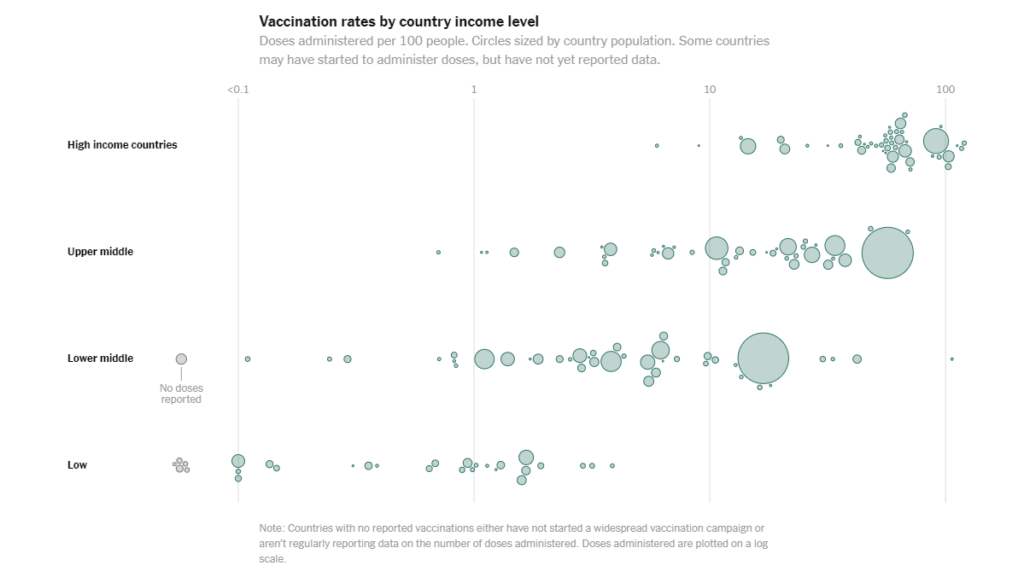
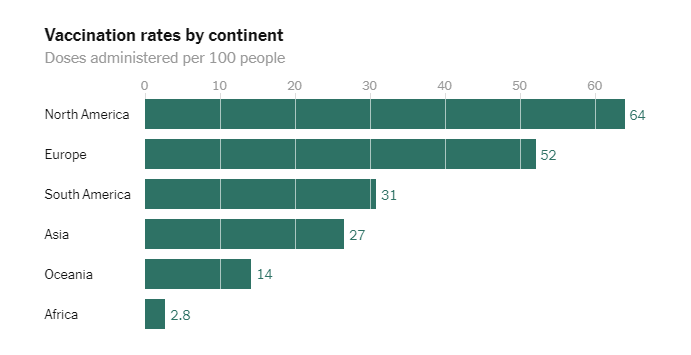
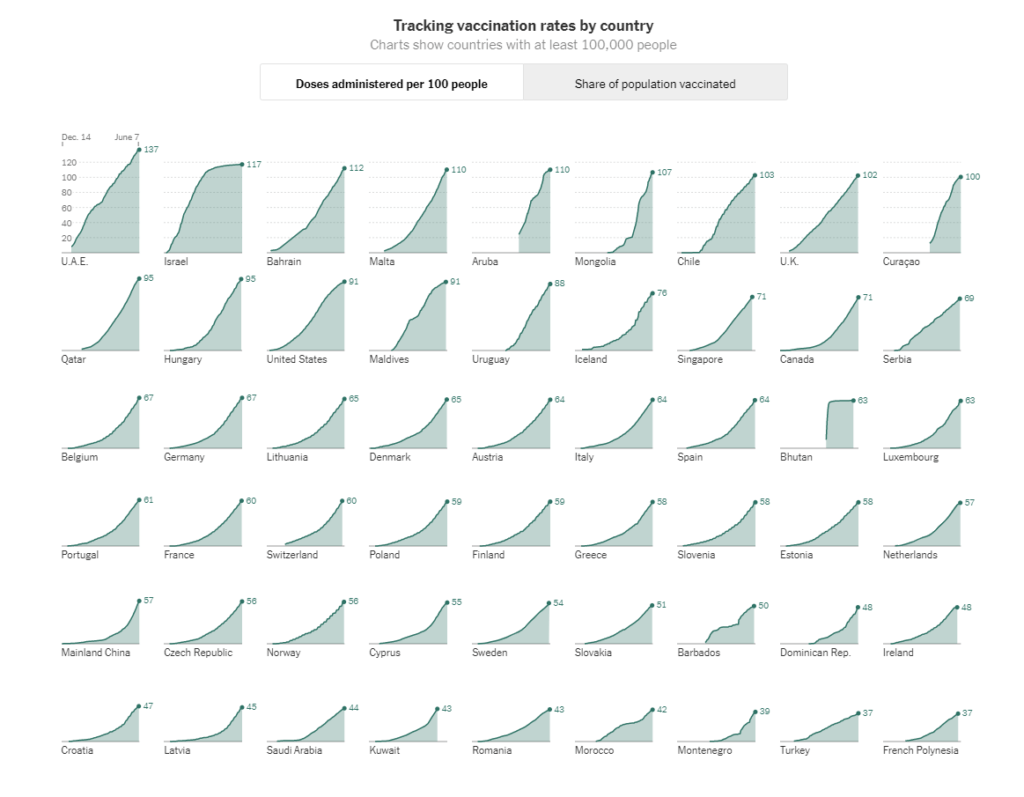
Being Balanced About Vaccines
As Muslims, we must make informed decisions. It is important that we actually understand the underlying pros and cons. We cannot afford to be blind in an age where information is available. The least we can do is follow trustworthy experts on the subject.
Yes, there have been questionable incidents and yes, conspiracies, greed, and inappropriate profiteering at the expense of people’s health have been exposed in the past. But is this the case for the current vaccines? We must deal with issues on a case-by-case basis.
In the current scenario, we are witnessing a global pandemic being tackled by all countries. The world’s eyes are on the vaccines. Any attempt to sneak in questionable ingredients or impose a sinister agenda will be exposed very quickly. Health agencies are closely monitoring the impact of the vaccines. Incidents of possible side effects are being reported instantaneously.
As millions of doses have been administered around the world, we now have many months of follow up data that all point to the general safety of the vaccines. Experts have mentioned that any side effect will most likely show up within the first month of taking the vaccine and long-term side-effects are rare – about one in a million.
References
Agrawal, R., Batista, C., Boczkowski, P., Fleming, M., Riles, A., & Thomson, D. A. (2021, May 25). FP Virtual Dialogue: How to Stop Vaccine Misinformation. Retrieved from Foreign Policy: https://foreignpolicy.com/events/fp-vaccine-misinformation-covid-19-coronavirus/
Flemming, A. (2020, September 28). The origins of vaccination. Retrieved from Nature: https://www.nature.com/articles/d42859-020-00006-7
Henley, J. (2021, May 25). Influencers say Russia-linked PR agency asked them to disparage Pfizer vaccine. Retrieved from The Guardian: https://www.theguardian.com/media/2021/may/25/influencers-say-russia-linked-pr-agency-asked-them-to-disparage-pfizer-vaccine
Herd immunity and COVID-19 (coronavirus): What you need to know. (2021, June 09). Retrieved from Mayo Clinic: https://www.mayoclinic.org/diseases-conditions/coronavirus/in-depth/herd-immunity-and-coronavirus/art-20486808
Holder, J. (2021, June 21). Tracking Coronavirus Vaccinations Around the World. Retrieved from The New York Times: https://www.nytimes.com/interactive/2021/world/covid-vaccinations-tracker.html
Iqbal, H. (2021, February 01). How the CIA’s fake Hepatitis B vaccine program in Pakistan helped fuel vaccine distrust. Retrieved from Vox: https://www.vox.com/first-person/22256595/vaccine-covid-pakistan-cia-program
Islamic Solutions to Contemporary Issues. (2021, January 26). Retrieved from Preston College: https://www.facebook.com/prestonintlcollege/photos/a.770469989646510/4365459230147550/
Madani, S. A. (2021, June 01). History of Tibb e Nabawi. Retrieved from Facebook: https://www.facebook.com/aalimofficial/posts/d41d8cd9/1576839099153492/
Madani, S. A. (2021, June 07). Tawakkul aur Ilaaj – Ghalat Fahmiyan aur unka jawab (Tawakkul and Treatment: Responses to Misconceptions). Retrieved from Studio Islam: https://www.youtube.com/watch?v=FarIgCOhEEw&t=1s
Madani, S. A. (2021, June 7). Woh amraz jin ko Shahadat se jod kar bataya gaya (Those diseases which have been given the status of martyrdom). Retrieved from Studio Islam: https://www.youtube.com/watch?v=fCZaUaB34kM
Maragakis, M.D., M.P.H., L. L., & Kelen, M.D., G. D. (2021, May 25). Is the COVID-19 Vaccine Safe? Retrieved from Johns Hopkins Medicine: https://www.hopkinsmedicine.org/health/conditions-and-diseases/coronavirus/is-the-covid19-vaccine-safe
Niamatullah, S. A. (2020, November 29). Covid-19 (Coronavirus) Vaccine – An Islamic Perspective by Abu Eesa. Retrieved from Prophetic Guidance: https://www.youtube.com/watch?v=Md4Azg7wYaU
Niamatullah, S. A. (2020, December 23). To Vax or not to Vax | Sh Abu Eesa on Unscripted #70. Retrieved from Islam21c: https://www.youtube.com/watch?v=kiYcn5ky6LU&t=1s
Panel Discussion on COVID-19 Vaccine Controversy. (2020, December 29). Retrieved from Al Balagh Academy: https://www.youtube.com/c/ALBALAGHACADEMY/videos
Pulla, P. (2021, May 27). How Covaxin became a victim of vaccine triumphalism. Retrieved from Mint: https://www.livemint.com/science/news/how-covaxin-became-a-victim-of-vaccine-triumphalism-11622022760541.html
Seeking medical treatment is prescribed in Islam. (2017, July 07). Retrieved from Islamweb: https://www.islamweb.org/en/fatwa/355789/seeking-medical-treatment-is-prescribed-in-islam
Vaccine Side Effects and Adverse Events. (2018, January 17). Retrieved from The History of Vaccines: https://www.historyofvaccines.org/content/articles/vaccine-side-effects-and-adverse-events
Scientific Responses to Misconceptions about COVID-19 Vaccines
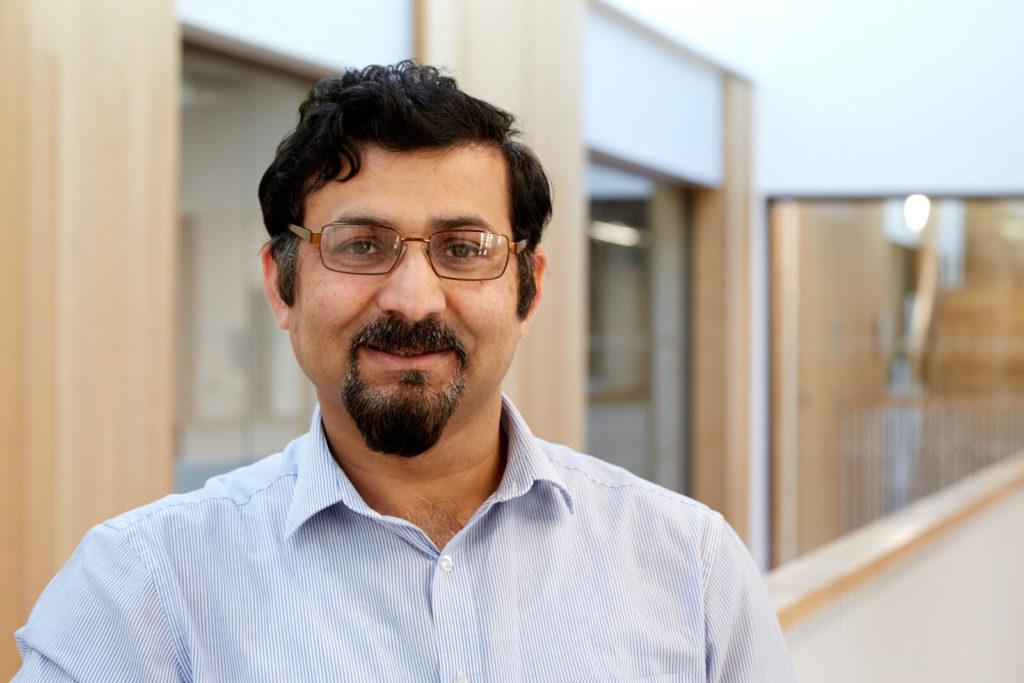
The following is a summary of Dr Muhammad Munir’s presentation delivered in December 2020 during a panel arranged by Al Balagh Academy, UK. Dr Munir is a respected virologist who sits in WHO’s expert panel on vaccines. His COVID-19 vaccine is in undergoing trials and his lab was one of the first in the world to have tested the live SARS-CoV-2 virus.
1. Can the vaccine be used to track people?
The first question that almost everybody asks is whether the vaccine component can integrate into the human genome (complete set of genetic information in an organism) and if that part can be used to either collect biometrics to track people or to get some information that otherwise cannot be acquired.
While it is true that there is a possibility that chips can be impregnated into the genome, it is not done through this vaccine.
Human surveillance can be done by many other means which are much cheaper, economical and probably already prevalent so the integration of the vaccine component or any other thing into the human genome to track people is not a cost-effective proposition. Pharmaceutical companies are already struggling to win public trust and confidence.
DNA vs mRNA
The whole body is composed of different cells and if we look into one of the cells, our DNA is completely packed within the cell nucleus. Anything that is related to DNA has to be in the nucleus. The DNA cannot come into the cytoplasm, which lies outside of the nucleus.
The cytoplasm has the mRNA which is the “Messenger RNA” that encodes some of the proteins, and those proteins make the building blocks of the body.
Vaccines using mRNA
The Pfizer and Moderna vaccines have a component of the mRNA. They are injected into the intramuscular root and they go into the cells and within the cells they are very short lived because mRNA itself is very unstable. They are destroyed by the clearing mechanism of our body within three to four days.
This is not only for the mRNA that is injected, even our own mRNA will degrade within four to five days through our natural clearing mechanisms. This mRNA does not go into the nucleus, so anything that does not go into the nucleus cannot be incorporated into our chromosome or into our DNA.
Besides, RNA and DNA are two different molecules, so RNA has no compatibility with the DNA and DNA is our genome. To sum up, the RNA injected in our body through a vaccine developed by Pfizer or Moderna cannot be integrated into our genome.
AstraZeneca vaccine
The AstraZeneca vaccine is different because they use the non replicating version of the vector as a carrier of the antigen. When it enters our body, it does not replicate; if it does not replicate it cannot go into the nucleus.
This means that there will only be ‘ectopic expression’, which means that it is only limited to the cytoplasm. If anything is not integrated into our genome, it would be very short lived — within four-five days it is gone.
2. Are COVID-19 vaccines developed using fetal cells?
Viruses need cells to replicate. They cannot replicate on their own. They have to invade living organisms, then they make more copies of their own. Bacteria do not need to do this, they can multiply themselves, but viruses have to replicate on to some sort of media (called a vector) to make more copies of it. That is how we make vaccines.
The vector that is used for making the vaccine has to be on some kind of cells, and those cells are derived from the fetus. Some of these cells are from fetuses aborted back in 70s and 80s, and they were not aborted for the sake of vaccine development.
This virus vector group has been modified so much, for example, the one that is being used in the AstraZeneca vaccine is completely changed. It is not exactly the same thing as it was in the aborted fetus. From a scientific perspective, it has lost its originality.
mRNA Vaccines are synthetic
The mRNA in these vaccines (Pfizer and Moderna) is purely synthetic, there is no cell culture of aborted fetuses involved. There is no component of the material that comes from animal or human sources, it is a purely synthetic vaccine.
AstraZeneca vaccine
The vector in the AstraZeneca vaccine (the medium on which it needs to grow) is the embryonic cell, the fetal cell. These cells allow the virus to replicate, but the important point to understand here is that when they are grown into the cell culture.
The quantity of this is many liters, then the virus is purified and extracted by removing all those cells that have originally come from the fetuses. The vaccine that is injected will not have those cells, so it would be only the attenuated virus particle that will go into the body and train our immune system.
3. Do vaccines contain pork gelatin and other dangerous ingredients?
Some vaccines may contain some objectionable components like gelatin derived from pork, or they can contain formaldehyde, mercury or other substances that are hazardous for our body. The amount of these molecules, or these compounds like formaldehyde or mercury are at levels that is already tested and validated or not hazardous to the body.
Gelatin is used for stabilizing the viruses, so it could be extremely important for the stability and efficacy of the vaccine, but it is not a component within any of these three vaccines.
4. Do these vaccines contain Genetically Modified Substances?
The process of using viruses to make the vaccine involves genetic modification, Today, genetic modification is something that we cannot live without. From fruits like bananas and strawberries to vegetables like corn, the food that we eat, has some component of genetic modification.
5. Why are vaccine companies filing Indemnity cases in various countries?
On the one hand pharma companies claim that the vaccine is very effective and safe, on the other hand they are applying to different governments for indemnity. How to reconcile these two statements?
The vaccine industry has not been a very profitable industry. This is probably the first time when the vaccine industry is seeing a major influx of revenue. The problem has been that if anything, directly or indirectly, is associated with any damage to the vaccine that is onto the liability of the pharmaceutical companies, the producers of the vaccine.
This means that they have to pay all liabilities. To protect them and allow pharmaceutical products to come into the country, many countries came up with the Vaccine Damages Payment Act. For example, it was introduced in the US in 1979. This means if anybody has a permanent or severe disability due to a vaccine, they will be paid for to the tune of hundreds of thousands of dollars, which is an enormous amount of money.
6. Are these ‘Rushed Vaccines’ i.e., launched without proper studies?
We have had first coronavirus pandemics back in 2002-2003 with SARS, which was called classical SARS, and then MERS in 2013. Both have been linked to coronaviruses. In the last 17 years, we have gathered enough information like what are really the targets, how we can build the vaccines, and what are the best suitable vaccine candidates? Thus, although the vaccine has been developed in one year, it has been based on knowledge gathered for the last 17 years.
Pharmaceutical companies have managed to repurpose those existing technologies against coronavirus very quickly, as there has been unprecedented need. Bureaucratic and political interference has been ameliorated.
Involvement of funds, collaboration between the pharmaceutical companies and the government has helped to develop this vaccine relatively quickly. For example, when I applied for a permit for a new laboratory for COVID-19, I received the permit in three weeks. It usually takes over three years.
7. How safe is the new mRNA technology?
mRNA vaccines are new technologies so therefore we don’t have long term safety data. However, mRNA technology itself has been in the scientific community for the last 20 years and the first mRNA-based vaccine vent into human arms in 2013. This means that we have least 7-8 years of experience with any of those trials.
8. Why are people getting adverse reactions to the vaccines?
The side effects of the covid 19 vaccine (reactogenicity) might be a little higher than the flu shot for a few reasons. This could be because of the nature of the technology or that phase three trials were not conducted with people such as those prone to allergies, pregnant women or young children (at the time of this presentation) just because we wanted to have a vaccine that can protect the most vulnerable.
Therefore, the emphasis has been on short-term side effects which are very minor and short lived and most of them go away within three to four days, at the most one week. After one week, there is no short-term side effect and that is what we have witnessed with 30-40,000 people tested. But then there are the possibilities of long-term side effects, but that is a really rare possibility. I mean one in one million.
9. Risk comparison
To put everything into the context, there are around 4400 deaths on an average per day (at the time of this presentation), with 1.6 million in one year and we have 71 million infections already. This means that three people are dying every minute, so that is our daily risk.
In response, there is the availability of a 95% effective vaccine that has been tested on thousands of volunteers, who are all safe when seen after two months. These volunteers showed very few short-term side effects or very short lived, which subsided within one week.
Ultimately, the choice is yours.
Hajj Will Be Limited To 60,000 People, All From Within The Kingdom
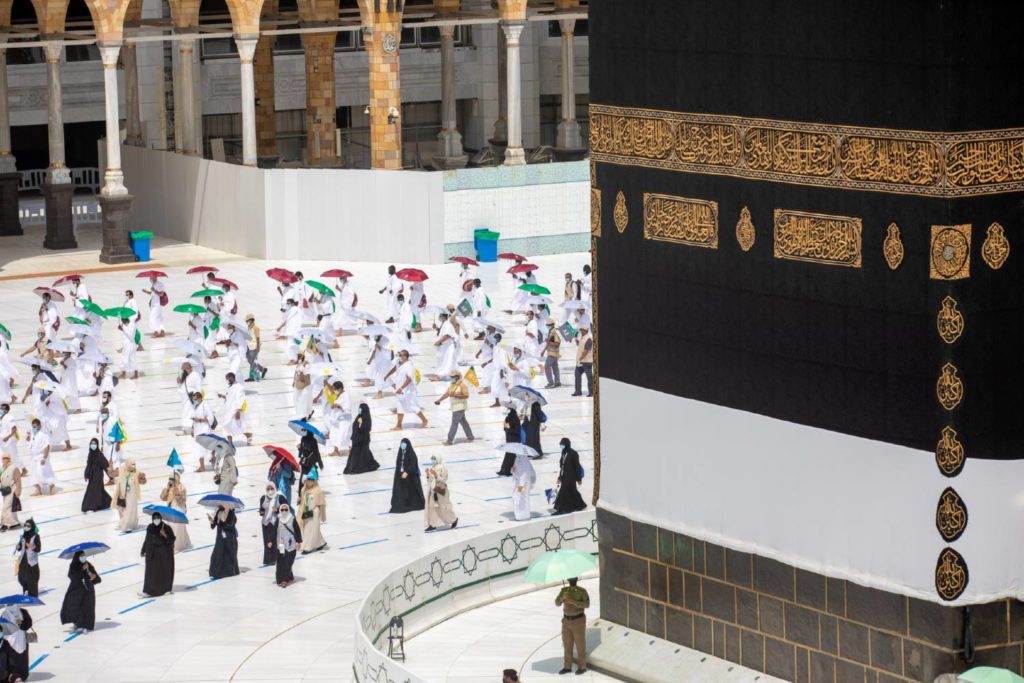
DUBAI: Saudi Arabia announced Saturday this year’s Hajj pilgrimage will be limited to no more than 60,000 people, all of them from within the Kingdom, due to the ongoing coronavirus pandemic.
The announcement by the Kingdom comes after it ran an incredibly pared-down pilgrimage last year over the virus, but still allowed a small number of the faithful to take part in the annual ceremony.
A statement on the state-run Saudi Press Agency quoted the Kingdom’s Hajj and Umrah Ministry making the announcement. It said this year’s hajj, which will begin in mid-July, will be limited to those ages 18 to 65.
Those taking part must be vaccinated as well, the ministry said.
“The Kingdom of Saudi Arabia, which is honored to host pilgrims every year, confirms that this arrangement comes out of its constant concern for the health, safety and security of pilgrims as well as the safety of their countries,” the statement said.
Pakistani start-ups raise $85m amid rush of foreign funding in fintech
KARACHI: Venture capitalists injected more than $85 million in Pakistani start-ups in the first five months of 2021, with fintech companies riding a wave of interest by overseas investors, according to data from Invest2Innovate Ventures (I2I), which supports early-stage enterprises in untapped developing markets.
Pakistani Internet platforms engaged in finance and business, or fintech companies, fetched about $22 million, mostly in foreign funding, since January 2021, according to Alpha Beta Core, a tech-driven boutique investment banking and financial advisory services platform.
It includes recent deals by TAG Innovation, KTrade and Abhi, which raised $12.1 million in separate rounds.
Industry experts said that Pakistan’s increasing mobile phone penetration and growing young population are major attractions for foreign funding in start-ups.
Official data shows Pakistan has 85 percent teledensity, with 183 million cellular, 98 million 3G/4G and 101 million broadband subscribers.
The decrease in global air travel during the coronavirus pandemic has also provided an unexpected advantage for start-ups in Pakistan, cutting out the requirement that investors visit the country as part of the due diligence process, and making them more open to discussing deals remotely over Zoom or other video conferencing platforms.
GE to build first desalination plant using clean energy in Saudi Arabia
JEDDAH: GE Renewable Energy’s Grid Solutions has won a deal from Doosan Heavy Industries and Construction Co. Ltd. to build a turnkey substation that will power the Yanbu-4 independent water producer plant.
This is the first integrated, seawater reverse osmosis project in the Kingdom that uses clean energy. Scheduled to be operational in 2023, Yanbu-4 will have a capacity of 450,000 cubic meters per day of freshwater to be supplied to households in Makkah and Madinah.
Located 140 km west of Madinah, near the town of Ar-Rayyis on the Red Sea coast of the Kingdom, Yanbu-4 will utilize reverse osmosis technology to supply potable water.
The plant will include solar energy units generating 20 MW of power to reduce grid electricity consumption throughout the desalination process, as well as water storage tanks designed to maintain a capacity of two operational days.
Turkey’s Rise in Military Drone Technology
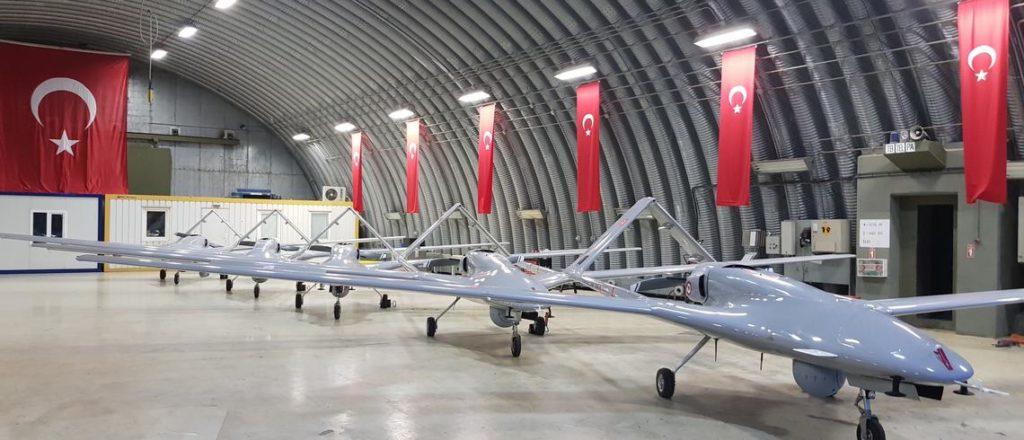
Turkey’s profile as a regional player has grown in recent months. Turkey’s military drone industry is now the world’s fourth-largest in the world, and its relatively affordable hardware helped Azerbaijan win its war with Armenia in late 2020.
It also turned the tide in Libya, proving pivotal in pushing back the forces of Khalifa Haftar from Tripoli. According to a report commissioned by the UN, a military drone attacked soldiers in Libya’s civil war using artificial intelligence, rather than a human pilot. The drone, believed to be a Turkish Kargu-2 model, was part of advanced military technology introduced by Turkey that ultimately proved a “decisive element” in helping the government defeat of the forces of Khalifa Haftar.
Turkish defence technology company Baykar has sold its Bayraktar TB2 armed drone to Azerbaijan, Ukraine, Qatar and Libya. Erdogan said in March that Saudi Arabia was also interested in buying Turkish drones.
Canada scrapped export permits for drone technology to Turkey in April, after concluding that the equipment was used by Azeri forces fighting Armenia in the enclave of Nagorno-Karabakh. The parts under embargo included camera systems for Baykar armed drones.
ISLAM
The Exploitation of ‘Prophetic Medicine’
By Shaikh Abdus Salam Madani
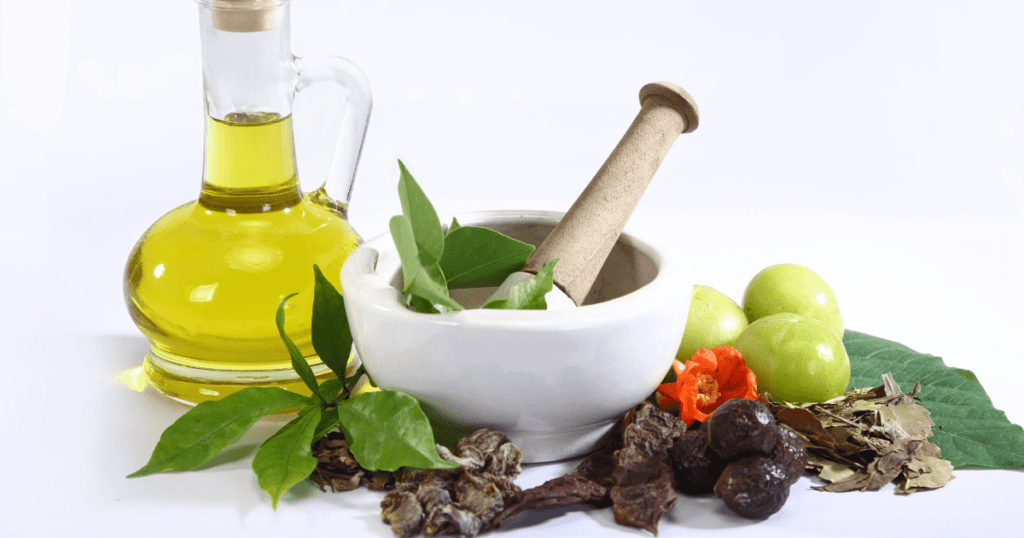
I was getting out of Asra hospital, Hyderabad, after having a physiotherapy session for my knee pain. A young Maulana, known to me, met me on the road and asked me the purpose for my visit. I told for physiotherapy of my knee pain. He replied, “Do Hijamah (cupping) and you will get cured.”
I asked him, “How many universities in the world are providing medical degrees in Arabic, Unani, or Prophetic medicines? How many laboratories in the world are making research or developing the Arabic or Prophetic medicine? How many books are written about those medicines? When was the last research paper published about this method of medicine?”
I asked him these questions and he had no answer for them while he is running a ‘Hijamah Clinic’.
Once, such a person was publicly criticizing the English medicines (Allopathy) which is the common modus operandi for such practitioners. They use all the apparatus and research of mainstream medicine such as laboratory tests, x rays, scans, medical information, and at the end claim that they have discovered the treatment, where modern medicine has failed. Or that it has a lot of side effects hence, each one should go for Unani/Islamic medicine.
I replied that every action has a reaction and if you claim that your so-called medicine doesn’t have any reactions means that it doesn’t have any action either. He didn’t have any answer for my question though he is a third generation Hakeem.
Another acquaintance was promoting hijamah as a cure-all, one-stop solution for all maladies. These people tend to base their marketing on huge unscientific, unproven claims and exploit the faith of the people.
Alternative medicine lacks evidence-based research, and no regulatory format exists to ensure that practitioners are adequately trained in the techniques they use.
It can be used as an integrated approach to treatment, but to claim that it is the panacea for all diseases is unethical.
The popularity of Allopathic treatment modalities is because of the fact that it is evidence based, standardized and up to date. While all the other forms of medicine be it Unani medicine or Prophetic medicine or Chinese medicine, or homeopathic etc. are based on experience and lack adequate research.
When it is called Prophetic medicine, the majority of Muslims considered it as a part of our religion. They were made to believe that having faith in the healing prowess of these prescriptions was an indication of their tawakkul and strength of Emaan. The Prophet was not sent as a ‘Hajjam’ (cupper) or a doctor or any other professional. If some information of science, clouds, creation of human being is mentioned in the Qur’an as the signs of Allah to ponder on the greatness of Allah, it doesn’t mean that the Qur’an is a scientific book or a medical book, or a book of geography.
Faith-based healing or having tawakkul on Allah and Islamizing medicine for commercial gains are two divergent concepts. And this aspect of promoting certain treatment modalities beyond their limitations is misrepresentation at best and deception and homicide at worst. At times, it can be guilty of misleading the patient and preventing him from seeking the necessary treatment by playing on his beliefs and accusing him of lack of emaan.
It has also been noticed that many a time, these practitioners of Prophetic medicine are not very Islamic, neither do they have much knowledge of Islam.
Yes, at times the Prophet mentioned the benefits of honey, blackseeds, etc. Such ahadith are very few. They are not more than ten or twenty ahadith. Throughout history, scholars never discouraged us from exploring the vast field of medicine, neither did they restrict us to the treatment suggestions mentioned in the books of hadith. Rather, there are ahadith that encourage the learning and discovering of medicine. For example, Abu Huraira narrated from the Prophet ﷺ that, “There is no disease that Allah has created, except that He also has created its treatment.” [Saheeh al-Bukhari, 5678]
In another narration he ﷺ said, “Some people know the treatment while some others don’t know it.”
Another Hadith reads: Usamah ibn Sharik said: I came to the Prophet ﷺ and his Companions were sitting as if they had birds on their heads. I greeted and sat down. The desert Arabs then came from here and there. They asked: Messenger of Allah, should we make use of medical treatment? He replied: Make use of medical treatment, for Allah has not made a disease without appointing a remedy for it, with the exception of one disease, namely old age.” [Sunan Abi Dawud, 3846]
Such ahadith encourage people to develop medicine for each and every disease.
Yes, the Prophet used cupping, and sometimes he advised the people to use honey, milk, and urine of the camel as medicine, not as religion. He did or advised because that was available at that time. It doesn’t mean that it should be used always whether the people need it or not.
If a hemophiliac is inadvertently administered cupping therapy by an unqualified hijamah enthusiast, it can lead to disastrous consequences.
Aspects of religion are unchangeable, but the matter of worldly issues were left to the knowledge and the experiences of the people. As the Prophet ﷺ said, “You have better knowledge (of a technical skill) in the affairs of the world.” [Sahih Muslim, 6277]
One of the great scholars Ibn Khaldoon wrote:
”The medicine mentioned in religious tradition is of the (Bedouin) type. It is in no way part of the divine revelation. (Such medical matters) were merely (part of) Arab custom. It is mentioned as the natural circumstances of the Prophet, like other things that were customary and natural in his life. They were not mentioned in order to imply that that particular way of practicing (medicine) is stipulated by the religious law. Muhammad ﷺ was sent to teach us the religious matters. He was not sent to teach us medicine or any other ordinary matters. In connection with the story of the fecundation of the palms, he said: “You know more about your worldly affairs (than I).” Ahadith related to medicine are not considered as divine law. There is nothing that prove the contrary. May Allah guide us to that which is correct.” [Muqaddamah Ibn Khaldoon, P729-732]
Those who are in alternative medicine may make huge claims but they don’t have any academic or scientific proofs for their claims except their own experience and the experience of other people. Most of the time, it leads to the loss of money, organs and even lives of the people. In fact, they will be held accountable for that on the Day of Judgement.
Shaikh Abdus Salam is founder and director of Aspire College of Excellence, India. The shaikh can be reached on his FB page and his videos are available on YouTube.
Fatwa on Hijamah
Question: The Messenger ﷺ did Hijamah. Is it possible for a person who is not sick to do this Sunnah? Should he do Hijamah?
Answer: No, this Sunnah, as the Fuqaha say [is that] its reasoning is known. Meaning, it is not practised merely as an act of worship. Rather, it is for treatment. For example, a person has pain in his head, back, or foot, then [in this case] he does Hijamah as a treatment. Hence, the Messenger ﷺ did not always do Hijamah in a specific place. Rather, it was in accordance to his need. At times between his shoulders, at times on his shin, at times on his head and like this. Thus, Hijamah is for treatment; the one who is in need of it does it and the one who is not in need of it doesn’t do it.
– Sheikh Nasiruddeen Al-Albani [Silsilah al-Huda wan-Nur, 304]
The Origin of Shirk: How People Started Worshiping Idols
By Zainub Khalid
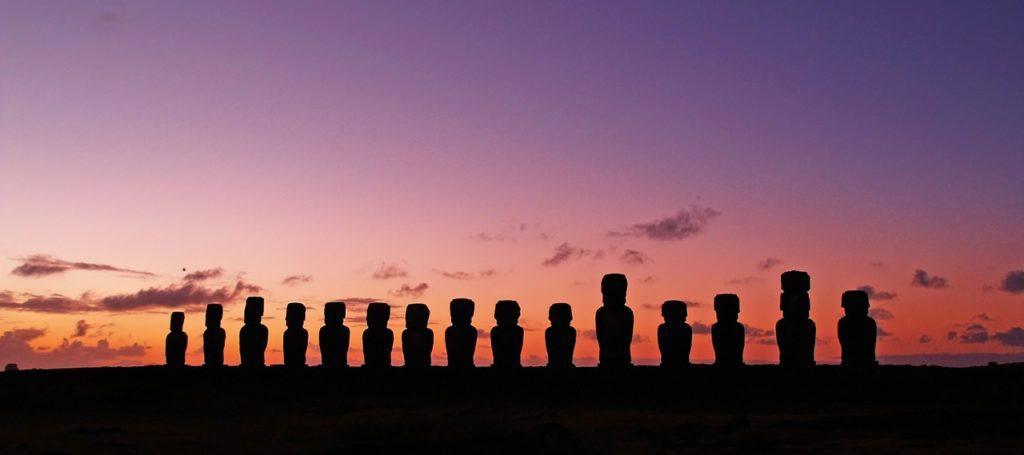
Believe it or not: It all started with good intentions. Idol worship started with the intention of bringing people closer to Allah and worshiping Him better — at least that’s what humans thought.
How could idol worship, something so grave that Allah refuses to forgive it unless true repentance is sought, begin with noble intentions?
Prophet Muhammed ﷺ explained how idolatry found its way among mankind in the explanation of verse 23 of Surah Nuh.
“And they have said: ‘You shall not leave your gods: nor shall you leave Wadd, nor Suwa’, nor Yaghuth, nor Ya’uq nor Nasr’ (these were the names of their idols).” [Qur’an 71:23]
Ibn Abbas, may Allah be pleased with him, said in his commentary of the above verse:
“These were idols of Prophet Nuh’s nation which in time ended up among the Arabs… These idols were named after some righteous men among Nuh’s people…” [Sahih Al-Bukhari]
Long before the arrival of Prophet Nuh, peace be upon him, people used to practice Tawheed. They worshipped none but Allah as taught by Prophet Adam, peace be upon him. Among them were some righteous men, who were well-known for their piety and devotion. When these righteous men died, Shaitaan came to the people and inspired them to make statues of them, bearing their names. The intention was to remember their devotion to Allah and to encourage people to be more like them.
People agreed to this seemingly noble idea. They placed the statues where those righteous people used to frequently meet. But they did not worship them.
However, years later, after that generation died, people slowly forgot the purpose of those statues. Shaitaan now came to their descendants and told them that their predecessors used to worship these statues for rain and other blessings. Due to a lack of knowledge, they were fooled by Shaitaan into worshiping the idols, which then their descendants followed as well.
Thus, Shaitaan introduced idol worship among the people of Nuh, peace be upon him. So strong was their belief in the idols that later when Prophet Nuh, peace be upon him, asked them to worship Allah alone, “they put their fingers in their ears, covered themselves with their garments, persisted, and were arrogant with [great] arrogance.” [Qur’an 71:7]
“And said, ‘Never leave your gods and never leave Wadd or Suwa’ or Yaghuth and Ya’uq and Nasr.” [Qur’an 71:23]
The Scheme of Shaitaan
Notice how Shaitaan did not simply suggest to the people to worship idols. He gradually and patiently poisoned their minds. A couple of generations later, Shirk seemed normal and even ‘sensible’ to them.
Shaitaan has been using this trick for ages and continues to do so today. One has to only see the fitnah among people nowadays and compare it with a few decades ago. Consider homosexuality for example. It is prohibited by the major religions of the world. Until the 20th century, it was considered immoral and a punishable offence in the US.
Now it has become so rampant that those who disapprove of it, let alone denounce it, are labeled as “intolerant and narrow-minded.” It is being promoted and celebrated widely to make it popular. Even the cartoons that children watch increasingly include homosexual references.
How can we protect ourselves?
1. Educate
What led the people of Nuh, peace be upon him, to start worshipping the idols of the righteous men was the lack of knowledge. The real reason for setting up the statues had become obscure and this gave Shaitaan the opportunity to misguide people.
To avoid that trap, we must educate ourselves, our families and communities, especially regarding the current fitan (pl. of fitnah) around the world. One should never make the mistake of blindly assuming that the ongoing trials will not find their way in our communities.
We should equip ourselves with the knowledge that differentiates between the less appealing halaal and the common haraam. Having the correct knowledge is like having won half the battle.
2. Increase our Emaan
We should also strengthen our Emaan to keep us grounded in what is pleasing to Allah and guard ourselves from what displeases Him. The Messenger of Allah ﷺ said: “Hasten to do good deeds before there emerges fitnah like a piece of black night, when a man will be a believer in the morning and a disbeliever in the evening, or he will be a believer in the evening and a disbeliever in the morning, and he will sell his religion for worldly gain.” [Muslim]
3. Duʽaa
And of course, keep praying to Allah to guide us and keep us on the right path. We already pray seventeen times a day in our salah when we recite “ٱهْدِنَا ٱلصِّرَٰطَ ٱلْمُسْتَقِيمَ” (Guide us to the straight path) from Surah al-Fatihah. We just need to put in some more sincerity when we recite it and follow it up with the required actions.
Eventually the trialswill become rampant as they had in the past. Yet, there will always be a group of people who will be the ‘strangers’ as Prophet Muhammad ﷺ said, “Islam began as something strange and will revert to being strange as it began, so give glad tidings to the strangers.” [Muslim]
We ask Allah to make us of those ‘strangers.’
SCIENCE
How cool is it to fully cover in summer?
By Faraz Omar
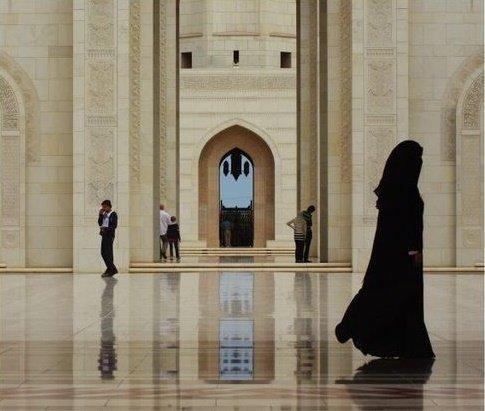
A common perception of looking at “overdressed,” fully covered hijabi women during the summer is that they are “poor oppressed things” who have to cover up in black* even when the sun is blazing hot!
[*Black is not required, but anyway…]
Muslims consoled themselves with memes of “Hell is hotter,” and rightly so! So what if we must tolerate the summer heat in a hijab? We do it in obedience to our Creator and He will reward us for it. Besides, the societal harms of immodesty carry greater consequences than personal discomfort.
All these are solid arguments that we, Muslims, have preached and lived by, alhamdulillah. But what if the premise of the objection was incorrect as well? Who said undressing under the hot sun is “cooler” and better for us?
One of the things that intrigued scientists many years ago was how Bedouins living in hot deserts would not only dress in layers but also wear black! This went against conventional wisdom of wearing light and white clothes. They researched and published a study in the Nature journal in 1980 titled ‘Why Do Bedouins Wear Black Robes in Hot Deserts?’
“It seems likely,” the scientists wrote, “that the present inhabitants of the Sinai, the Bedouins, would have optimised their solutions for desert survival during their long tenure in this desert. Yet one may have doubts on first encountering Bedouins wearing black robes and herding black goats. We have therefore investigated whether black robes help the Bedouins to minimise solar heat loads in a hot desert.”
Science Behind the Bedouin’s Dress
The scientists found out that the cooling action inside the loose robes worn by Bedouins happens by convection – either through a bellows action, as the robes flow in the wind, or by a chimney sort of effect, as air rises between the robe and skin.
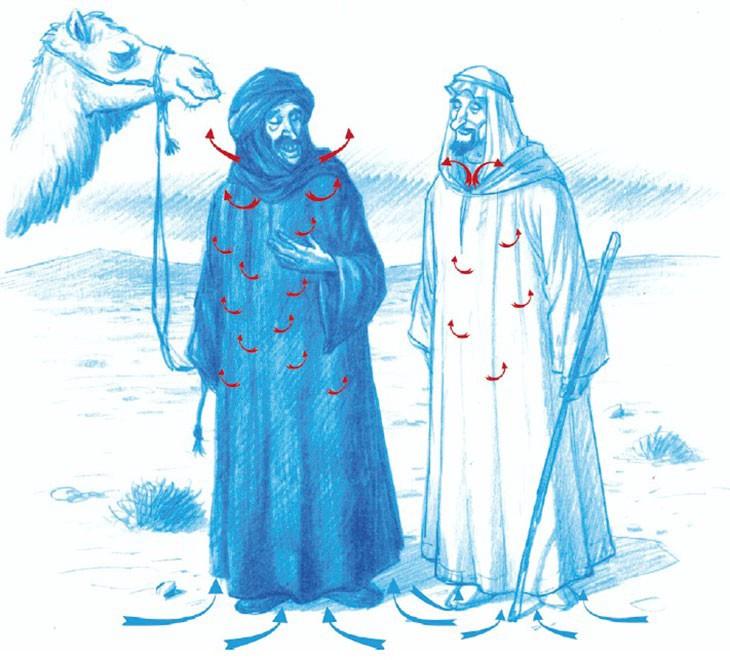
Bedouins wear loose clothing – large robes covering them from head to toe to protect them from the sun, wind, and sand. The men first put on a large cotton shirt directly against the skin. The latter is then itself covered by a loose garment. The outer fabric is therefore not in contact with the skin. In addition, air circulates easily between the two garments.
The air heated by the outer fabric rises inside and sucks colder ambient air under the dress. In this convection movement, it is as if the two dresses were playing the role of bellows, pushing hot air out through the fabric and down the neckline.
The key to staying cool by Bedouins in the desert is in the thickness of the fabric. The outer layer of fabric does get hotter because the black color absorbs more heat, but that heat does not get transmitted to the skin because of the thick fabric. On the other hand, thin black clothing transmits that heat to the skin, making a person hotter.
Summer layering might seem like an oxymoron but that’s “the recipe for looking (and feeling) cool in the heat” say style gurus. The thickest fabric should be furthest away from your body.
Harms of Exposing in Summer Heat
According to the Cleveland Clinic:
The immediate danger of too much sun is sunburn. If you looked at sunburned skin under a strong microscope, you would see that the cells and blood vessels have been damaged. With repeated sun damage, the skin starts to look dry, wrinkled, discolored, and leathery. Although the skin appears to be thicker, it actually has been weakened and, as a result, it will bruise more easily.
However, the sun’s most serious threat is that it is the major cause of skin cancer, which is now the most common of all cancers. Doctors believe that most skin cancers can be avoided by preventing sun damage.
The Fiqh of Clothes and Haya
Clothes are a blessing of Allah upon us. Allah says in Surah al-A’raf, 26-27:
O children of Adam, We have bestowed upon you clothing to conceal your private parts and as adornment. But the clothing of righteousness – that is best. That is from the signs of Allah that perhaps they will remember.
O children of Adam, let not Satan tempt you as he removed your parents from Paradise, stripping them of their clothing to show them their private parts. Indeed, he sees you, he and his tribe, from where you do not see them. Indeed, We have made the devils allies to those who do not believe.
Dressing modestly has great impact on the health of a society. It is not a secret that the culture of women undressing has more to do with following desires than any individual or societal benefit. We are well aware of what is happening in immodest societies – the disappearing family structure, abuse of women, and loneliness.
Alhamdulillah for Islam and the emphasis on Haya that Muslim communities continue to be positive, healthy, and largely safe from the ills of immodesty.
References
Amiram, S., Richard, T. C., Virginia, F., & Arieh, B. (1980). Why do Bedouins wear black robes in hot deserts? Nature, 373–375.
Cleveland Clinic. (2019, October 10). Sun Damage: Protecting Yourself. Retrieved from Cleveland Clinic: https://my.clevelandclinic.org/health/articles/5240-sun-damage-protecting-yourself
Tss, M. (2020, October 20). Dress in black … to protect yourself from the sun. Retrieved from Medium: https://mao-tss.medium.com/dress-in-black-to-protect-yourself-from-the-sun-f300f2f0b2a6
HISTORY
History of Masjid al-Aqsa and the Dome of the Rock
By Shaikh al-Islam Ibn Taymiyah (D. 728H)
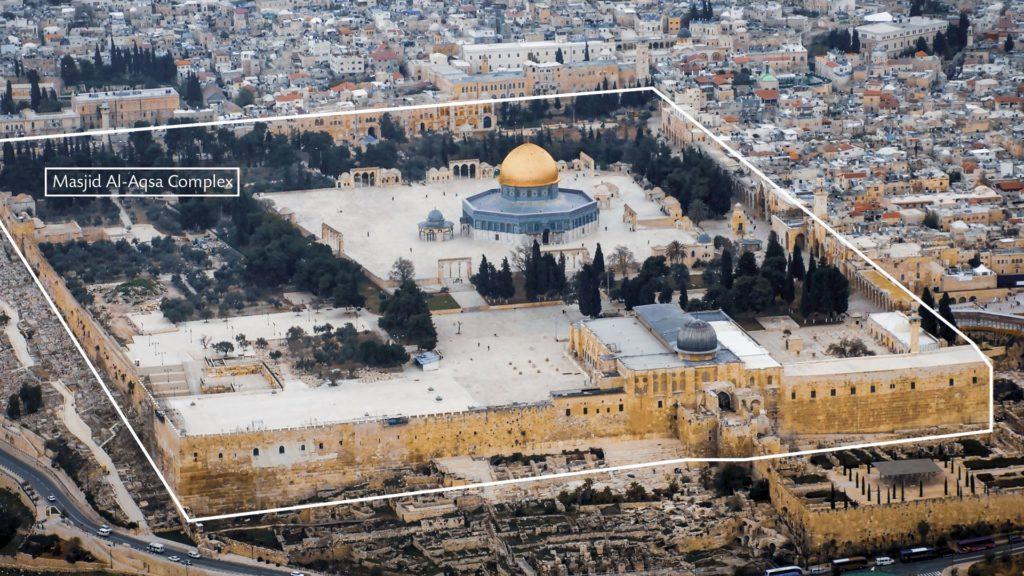
Al-Masjid al-Aqsa is the name for the whole of the place of worship built by Sulaymaan (peace be upon him). Some people started to give the name of al-Aqsa to the prayer-place which was built by Umar ibn al-Khattab in front of it.
Praying in this prayer-place which Umar built for the Muslims is better than praying in the rest of the mosque because when Umar conquered Jerusalem there was a huge garbage dump on the rock, since the Christians wanted to show their scorn for the place towards which the Jews used to pray. Umar issued orders that the filth be removed. He said to Ka’b [al-Ahbar]: “Where do you think we should build a place of prayer for the Muslims?” Ka’b replied, “Behind the rock.” Umar said, “O you son of a Jewish woman! Are influenced by your Jewish ideas! Rather I will build it in front of it.”
Hence when the imams of this ummah entered the mosque, they would go and pray in the prayer-place that was built by Umar.
With regard to the Rock, neither Umar nor any of the Sahabah prayed there. There was no dome over it during the time of the Rightly-Guided Caliphs. It was open to the sky during the caliphate of Umar, Uthman, Ali, Mu’awiyah, Yazeed and Marwaan… The scholars among the Sahabah and those who followed them in truth did not venerate the rock because it was an abrogated qiblah… rather it was venerated by the Jews and some of the Christians.”
(Majmoo’at al-Rasaa’il al-Kubra, 2/61)
[Umar denounced Ka’b al-Ahbar and called him the son of a Jewish woman because Ka’b had been a Jewish scholar and rabbi. When he suggested to Umar that he should build the mosque behind the rock, it was out of respect for the rock so that the Muslims would face it when praying, and veneration of the rock was part of the religion of the Jews, not the religion of the Muslims. – IslamQA]
Sheikh Jarrah: Story Behind the Name
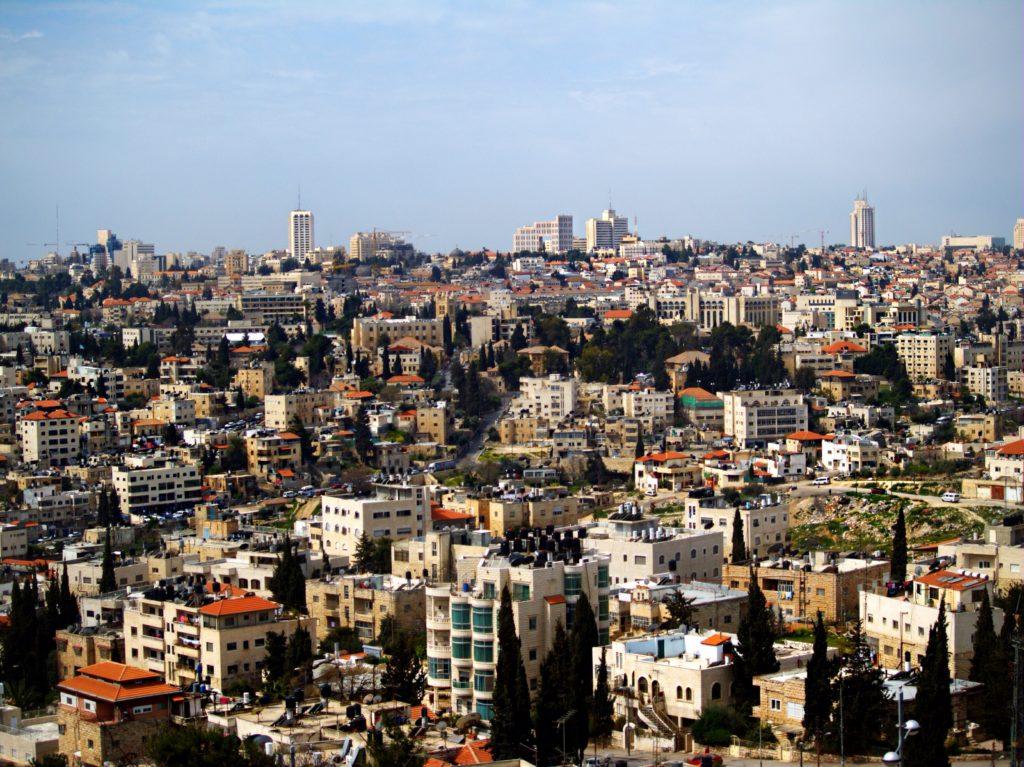
Sheikh Jarrah is named after the doctor of Salahuddin Al-Ayyoubi. Hussam al-Din al-Jarrahi, who lived in the 12th century, was an emir and the personal physician to the military leader who liberated Jerusalem from the Crusaders.
Sheikh Jarrah was originally a village named after Sheikh Hussam received the title Jarrah (جراح), meaning “healer” or “surgeon” in Arabic.
Sheikh Jarrah established a zawiya (literally “angle or corner,” also meaning a small mosque or school) known as the Zawiya Jarrahiyya. Sheikh Jarrah was buried on the grounds of the school.
The neighborhood Sheikh Jarrah was established on the slopes of Mount Scopus. The initial residential construction works were commenced in 1865 by an important city notable, Rabah al-Husayni, who constructed a large manor among the olive groves near Sheikh Jarrah’s tomb and outside the Damascus Gate. This action motivated many other Muslim notables from the Old City to migrate to the area and construct new homes.
Because it was founded by Rabah al-Husayni whose home formed the nucleus of Sheikh Jarrah, the neighborhood was locally referred to as the “Husayni Neighborhood.” It gradually became a center for the notable al-Husayni family whose members, including Jerusalem mayor Salim al-Husayni and the former treasurer of the Education Ministry in the Ottoman capital of Istanbul, Shukri al-Husayni, built their residences in the neighborhood. Other notables who moved into the neighborhood included Faydi Efendi Shaykh Yunus, the Custodian of the Aqsa Mosque and the Dome of the Rock, and Rashid Efendi al-Nashashibi, a member of the District Administrative Council.
Life of Imam al-Bukhari
By Fatima Khalid

Studying about the early generation of scholars is essential because through their actions and deeds, they represent a practical manifestation of Islam. Studying about hadith scholars like Imam al-Bukhari in particular is important to be able to fully appreciate their contribution to Islam and to know the men through whom Allah preserved His religion.
Imam al-Bukhari is one of the best-known figures in the fields of hadith (the science of the sayings and teachings of the Prophet ﷺ). His full name is Muhammad ibn Ismaʽil al-Bukhari. Born in the year 194 AH, he was raised by his mother, after losing his father at a tender age.
He inherited his love for knowledge from his father, may Allah have mercy on him, who was himself a hadith scholar and a student of Imam Malik. Imam al-Bukhari immersed himself in the study of hadith and fiqh attending lectures of circles in and around his hometown. From an early age, he possessed a unique ability to understand complex law issues as well as an acute and precise memory. It is believed that he had memorised the books of Wakiʽ and Abdullah ibn Mubarak, may Allah have mercy on them, early on.
At the age of sixteen, he traveled to Makkah, accompanied by his mother and brother, to perform Hajj. In his own words he recounts:
“I set out with my mother to perform Hajj. My brother returned with my mother, but I stayed behind in order to seek the knowledge of the Hadith. When I turned eighteen, I began to write down the legal rulings of the Companions, may Allah be pleased with them, and the Tabi’un (the generation that followed the Companions), as well as their sayings.”
Imam al-Bukhari was an excellent example of a scholar who traveled throughout his life, far and wide, to seek knowledge. Imam al-Bukhari is reported by Sahl ibn Sirri to have said:
“To seek knowledge, I traveled to Egypt and Syria twice, Basra four times, spent six years at the Hijaz (Makkah and Madinah) and left for Kufa and Baghdad on so many occasions accompanied by Hadith scholars.”
He used the wealth that he inherited from his father to fund his travels and also invested it by getting into business partnerships as a silent partner.
During these travels, he studied under a number of mighty scholars of his time. Most notably, Ali ibn al-Madini, Yahya ibn Ma’in, Mohammad ibn Yusuf Al-Firyabi, Ishaq Ibn Rahwayh and many others.
His own recorded words may give us an idea of his extensive travels, teachers and learning:
“I wrote down (Hadith) from more than one thousand teachers … and I remember the chain (of narrators of) of every Hadith that I have with me.”
This statement also testifies to the amazing memory of Imam Bukhari (rahimahullah).
A few of his teachers and some of his peers later on became his students too. Abu Abdullah al-Fibari recounts Abdullah ibn Muneer (one of his teachers) writing hadith narrations from Imam al-Bukhari and saying that he was one of his students. This in itself is enough to affirm Imam al-Bukhari’s position in the sight of his teachers.
From his students emerged scholars who went on to become beacons of knowledge in their own right, like Imam Muslim ibn Hajjaj, Abu Abdurrahman an-Nasa’i, and Imam Abu ‘Esa at-Tirmidhi.
Along with learning and teaching, Imam al-Bukhari wrote a number of books throughout his life to pass on his immense wealth of knowledge. The most notable of his work is of course Al-Jamiʽ as-Sahih al-Musnad min Hadith, or more commonly known as Sahih al-Bukhari, ranked after the Book of Allah in truthfulness and authenticity. Unfortunately, not all of his works survived to reach us.
His distinct superiority above others did not go untested. For instance, there were some people, having heard of his many accomplishments, and the attributes which were issued to him, decided to test him. They intentionally mixed up the chain of narrators of a hundred hadith narrations and recited them to him, hoping to catch him making some mistake. However, Imam al-Bukhari discredited each of them saying “[This is] not to my knowledge” and recited back to them the wrong narrations followed by the correct narration. Such was his powerful memory that gained him the trust of the people during his time and whole of the Muslim Ummah up until today.
What set him apart from other scholars of his time?
It was his meticulous research, precise memory, and ability to discern the authentic and inauthentic narrations as well as pointing out hidden defects in the chain of narration. Some of his teachers would consult him on these matters as well.
Abu Esa at-Tirmidhi said, “Neither in Iraq nor in Khorasan have I seen anyone who knows more about history, hidden defects in narrations, and the chains of Hadith narrations than Muhammad ibn Ismaʽil.”
This aspect of his work however required him to point out defective narrators to be able to sift the authentic from unauthentic hadith. Even when doing so Imam al-Bukhari was extremely cautious and never outright declared anyone a liar or a fabricator.
He used guarded language and statements like “there are some doubts about him” or “his narrations are disputable” or something like “that person is weak in Hadith.” Such statements meant that it was not permissible to relate narrations from them. He did so because he is reported to have said, “I hope that when I meet Allah, and when he will take account of me, He will find that I have not backbit anyone.”
Acquiring worldly gain did not find place in his list of priorities. He inherited a good share from his father, which he either used in his scholarly pursuits or gave away in charity. To him, the pursuit of knowledge with the attached responsibility to spread it was of paramount importance.
Once while on a journey in a boat, when a fellow passenger learned from Imam al-Bukhari that he carried a hundred gold dinars with him, the man made an outcry that he had lost the same amount. While a search was being carried out Imam al-Bukhari realizing the outcome would tarnish his reputation, which would then prevent him from learning and imparting knowledge, threw his money off the boat.
When he was later questioned about it, he said “Shall I lose a precious pearl (i.e. my knowledge and achievement as a scholar) that I have earned over a lifetime over a limited number of dinars?”
Towards the latter stages of his life, he visited Nisapoor and taught in huge circles of knowledge. Muhammad ibn Yahya ad-Dhuhali was an established scholar of the place. When his circle began to empty out because most of his students attended Imam al-Bukhari, jealousy took the better of him and he flamed a controversial position that Imam al-Bukhari held, which was a hotly contested topic to touch on.
As the tension grew unbearable, Imam al-Bukhari left Nisapoor for his hometown. There he was approached by the governor of Bukhara to conduct private lessons for his son to which Imam al-Bukhari refused saying that those who wish to gain knowledge should themselves come and seek it. This, and the spread of the previous rumors, led to the governor of Bukhara expelling him whereupon he went on to settle in Kharteng, a village on the outskirts of Samarqand where he died in the year 256 AH at the age of 62.
May Allah have mercy on him and reward him well for his immense contribution to the Muslim Ummah.

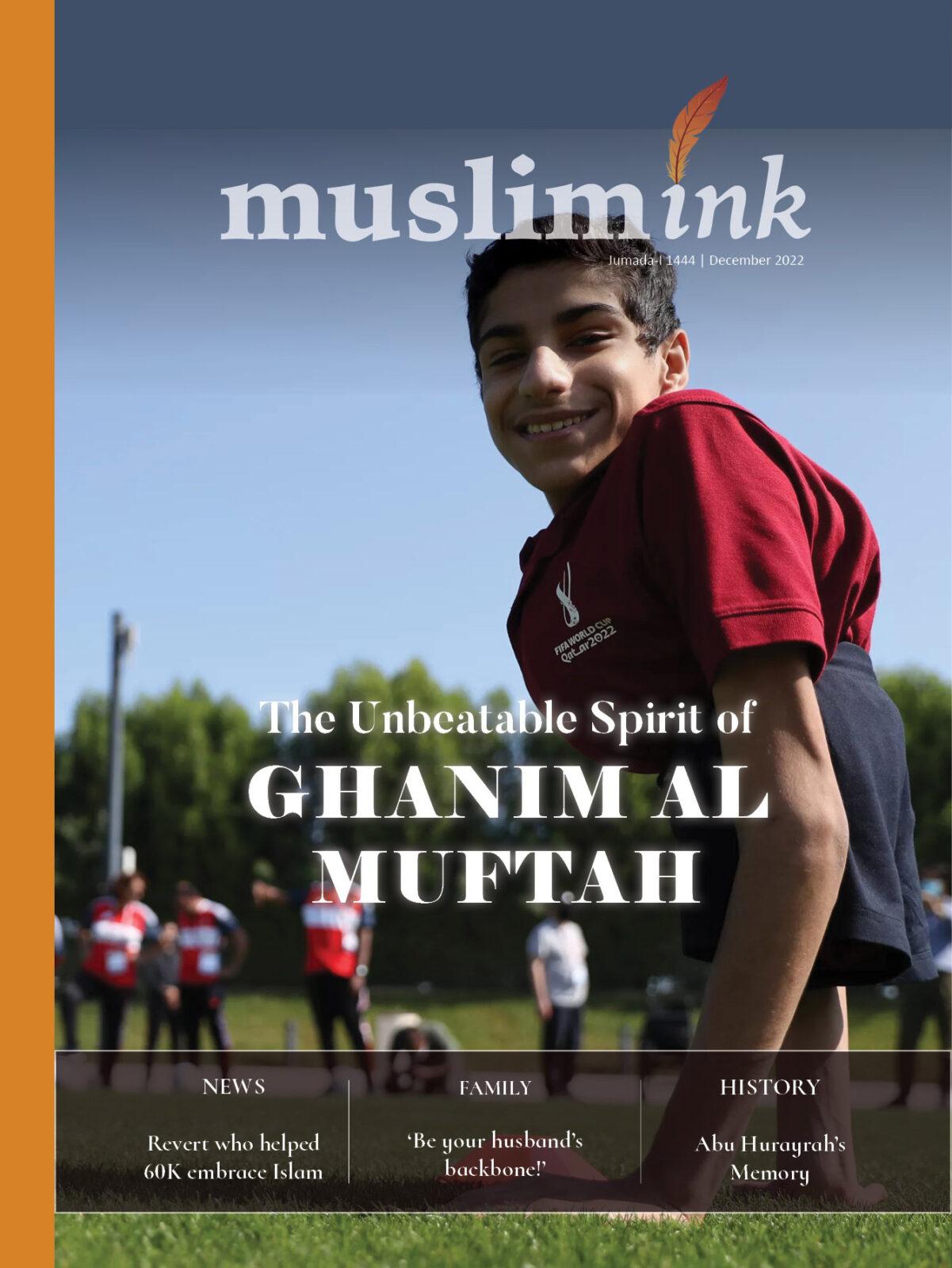
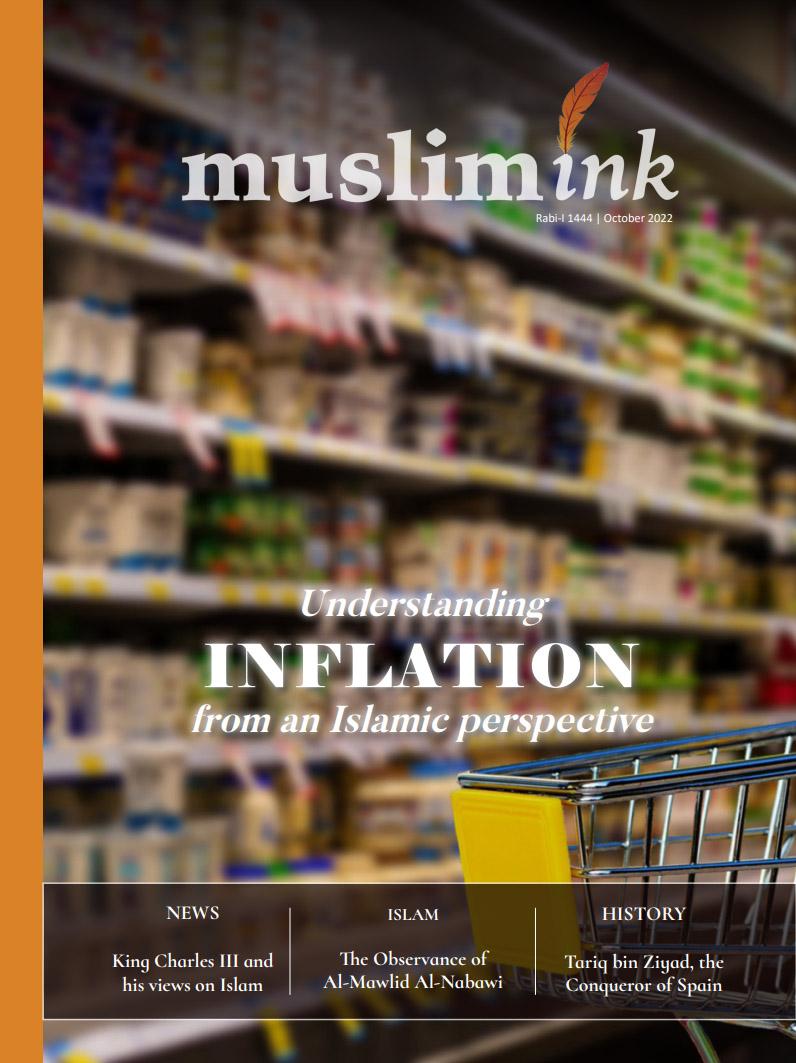
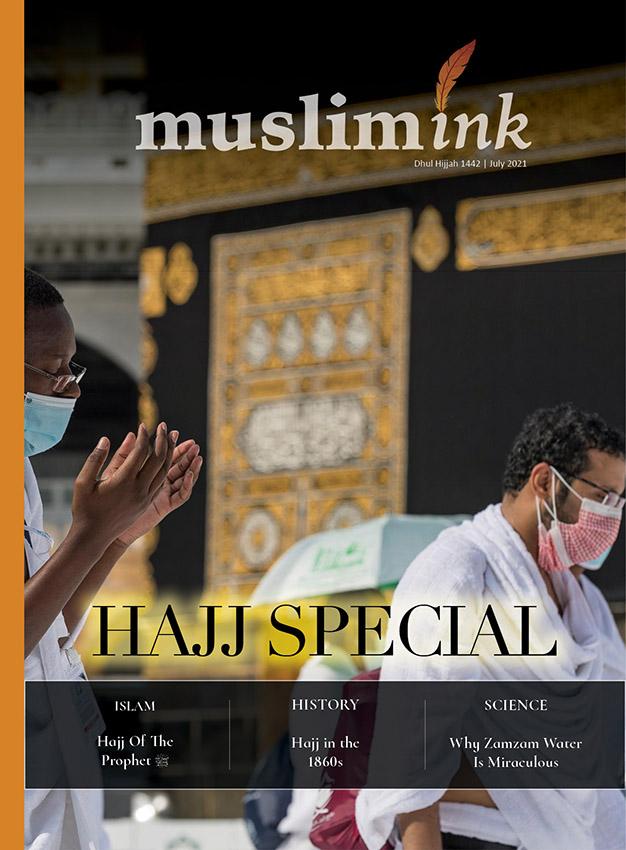
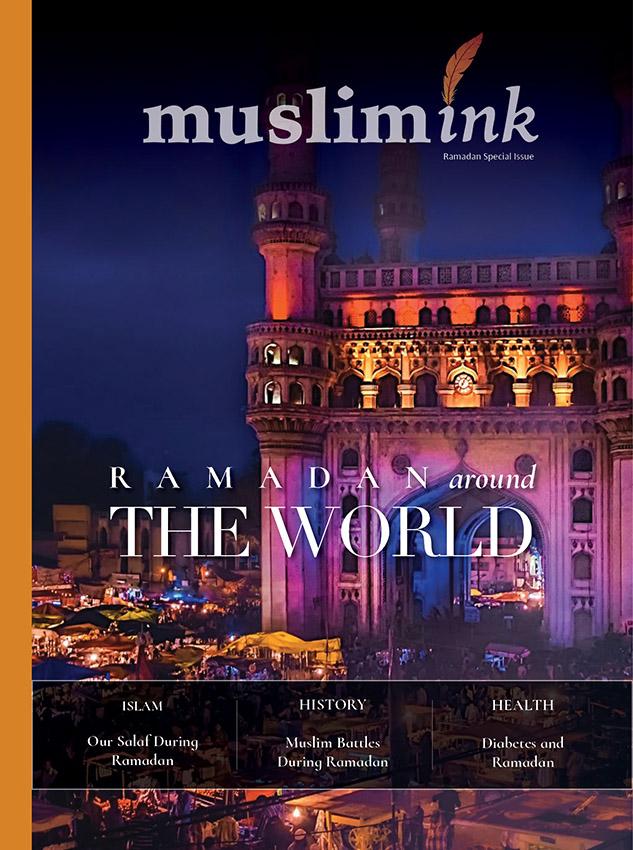
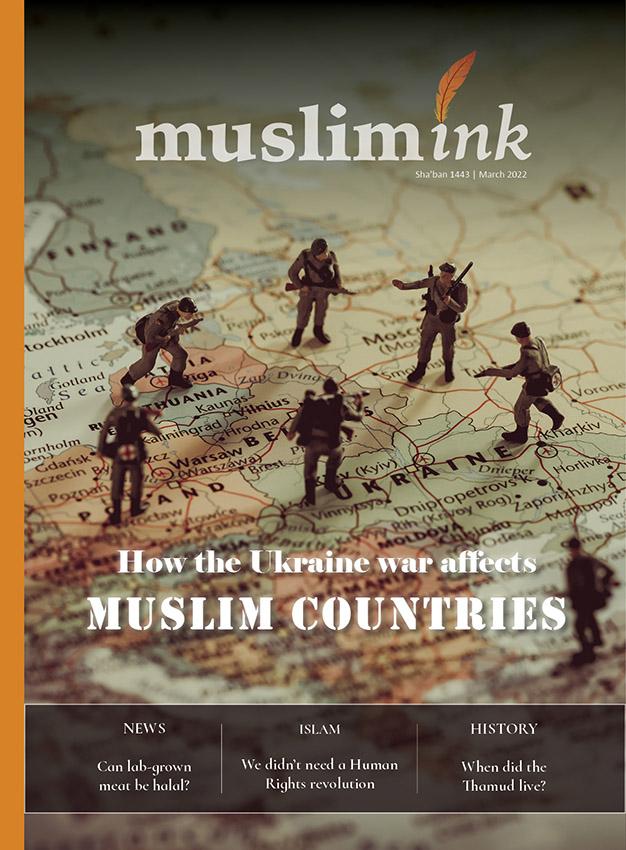

 Dr. Bilal Philips
Dr. Bilal Philips